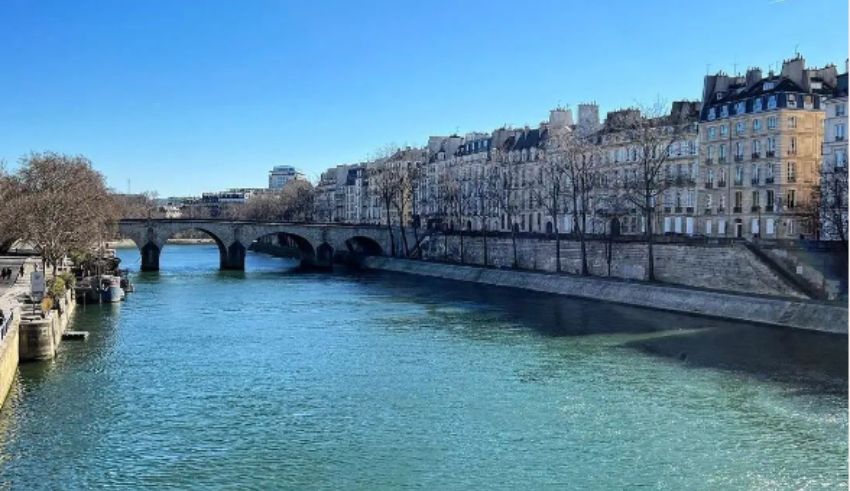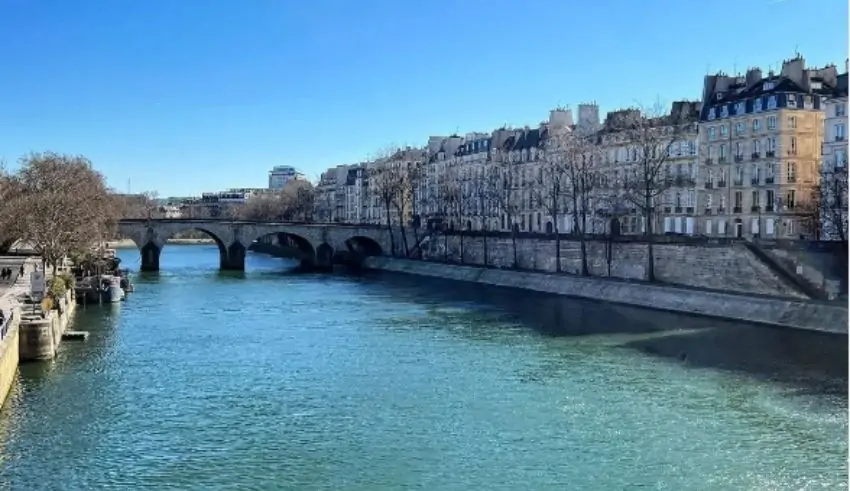

(C) seinerivercruise IG
The 2024 Paris Olympics, a highly anticipated event set to showcase the city’s grandeur and sophistication, have stirred up unexpected opposition among Parisians. A unique and provocative protest movement has arisen, threatening to disrupt the meticulously planned spectacle and bringing to light deeper, simmering issues within the city.
The Seine River, an enduring emblem of Parisian beauty, was chosen to host several swimming events during the 2024 Games. However, this picturesque river has long struggled with severe pollution, rendering it unsuitable for such activities. In response, the French government launched an ambitious cleanup project, pouring an eye-popping $1 billion into efforts to make the Seine swimmable by the time the Olympic torch is lit. This extensive investment aimed to convert the Seine into a pristine, internationally admired venue.
Despite the grand vision of the government, many Parisians viewed the hefty expenditure with skepticism and frustration. The significant sum allocated for the river cleanup sparked a debate about governmental priorities, as numerous residents argued that these funds could have been better spent on addressing pressing social issues. Paris is grappling with a host of challenges, including inadequate public services, a growing homeless population, and the plight of underpaid workers. The perception that the government was prioritizing an international event over the welfare of its citizens intensified public discontent.
Environmental concerns further fueled the frustration. Reports from environmental groups highlighted alarmingly high levels of bacteria in the Seine, casting doubt on the cleanup’s efficacy. These findings contradicted government assurances about the river’s safety, leading many to question the credibility of official statements.
Public dissatisfaction culminated in an unusual and attention-grabbing social media campaign under the hashtag “#JeChieDansLaSeineLe23Juin” (“I’ll Poop in the Seine on June 23rd”). This movement, complete with its own website, proposed a mass defecation event in the river as a powerful symbol of the residents’ discontent, drawing significant international attention.
While the proposed protest was undeniably provocative, its underlying message was serious and multifaceted. The “#JeChieDansLaSeineLe23Juin” campaign aimed to spotlight two critical issues:
The “#JeChieDansLaSeineLe23Juin” campaign quickly garnered significant media attention, both within France and internationally. The shock value of the proposed protest ensured widespread coverage, compelling officials to address the underlying concerns. Paris Mayor Anne Hidalgo, who had initially planned a symbolic swim in the Seine to demonstrate its safety, postponed the event. This decision allowed for further scrutiny of the water quality and gave the authorities time to respond to public concerns.
The unconventional nature of the protest proved effective in sparking a crucial conversation about the city’s environmental and social priorities. The campaign served as a stark reminder that while hosting the Olympics is a prestigious opportunity, it should not come at the expense of the city’s well-being and the needs of its residents. The “poop protest” may have been unorthodox, but it succeeded in highlighting critical issues and pushing for a more balanced approach to public spending and environmental management.
The controversy surrounding the 2024 Paris Olympics and the ensuing protest movement reflect deeper tensions within the city. The significant investment in cleaning the Seine, juxtaposed with ongoing social and environmental challenges, sparked a powerful response from the public. The “#JeChieDansLaSeineLe23Juin” campaign, despite its provocative nature, effectively brought attention to these issues and underscored the importance of prioritizing the needs and well-being of the city’s residents.
As the Olympic Games approach, this movement serves as a poignant reminder that the true measure of success lies not only in international accolades but also in the sustainable and equitable development of the host city. The Parisian protest highlights the necessity for governments to balance the allure of global events with the everyday realities and needs of their citizens, ensuring that the legacy of such events contributes positively to the city’s future.
In the end, the “Goodbye Olympics” protest movement is more than a fleeting act of rebellion; it is a call for a reexamination of priorities, urging a shift towards more inclusive and responsible governance that values the voices and well-being of all residents.
Oppo is one of the forerunners of mobile production companies in the Asian market primarily for their impressive features easing…
Rock legends Foo Fighters are now officially returning to the stage in 2025 as they already made their first booking…
All eyes are now turned towards the Middle East, after the buzzing real-time announcement has been dropped on the social…
The 36-year old Indian cricketer, Ravindra Jadeja has garnered the glory of becoming the No.1 all-rounder in the Test rankings…
On 14 May 2025, three artists Ken Miyake, Hiromitsu Kitayama and Yuma Jinguji from the TOBE agency has come forward…
China’s exports of steel to ASEAN countries had significantly sky-rocketed in Q1-2025, with an astounding 36.55 million tons traded within…
This website uses cookies.
Read More